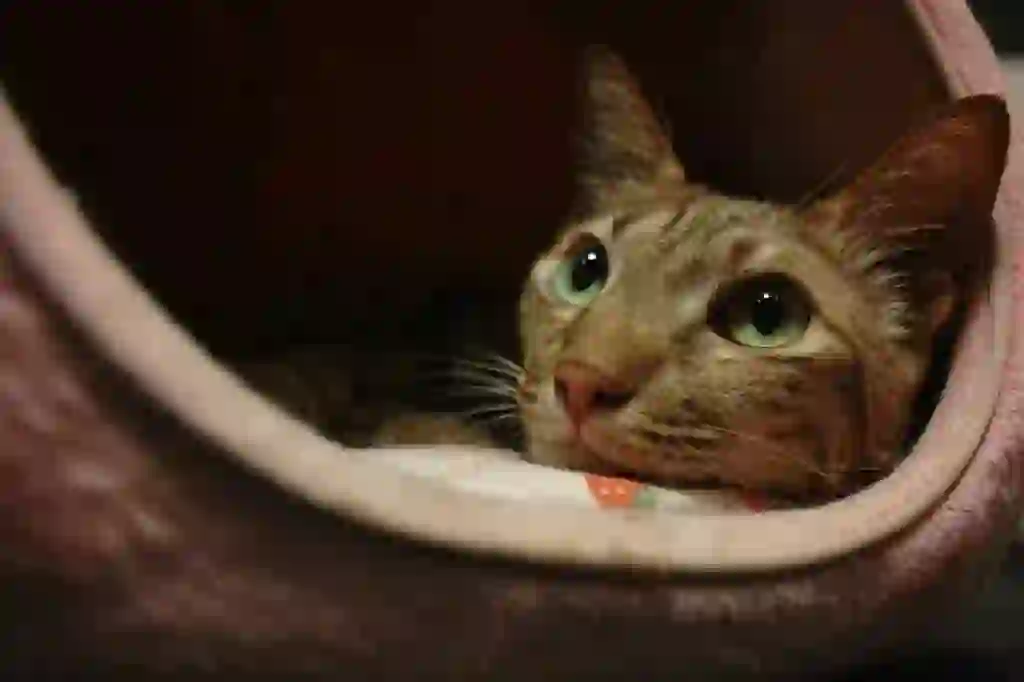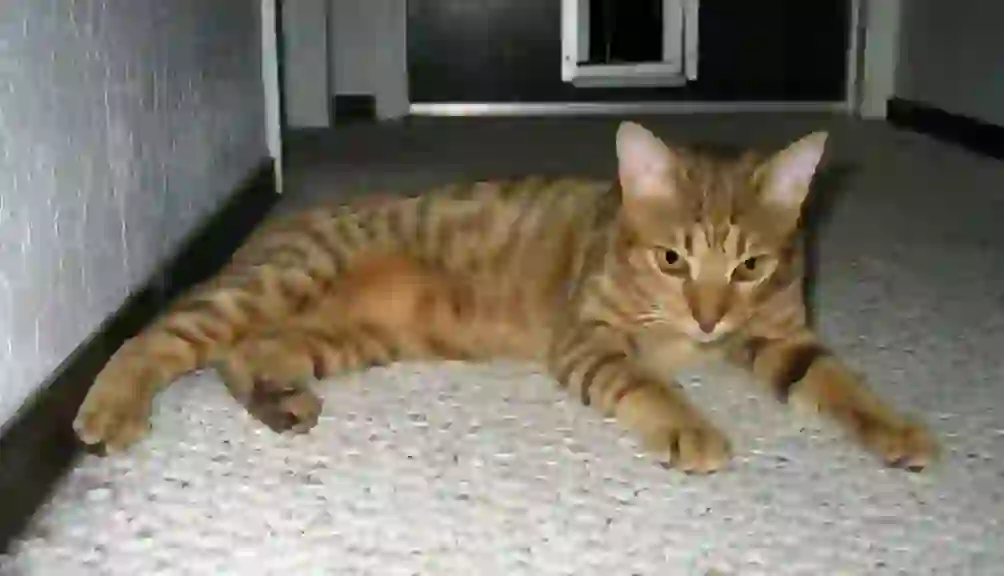
Ocicat
Ocicat
Ocicat
Wild in appearance, it looks like a wild cat. Since it is not often seen in Japan, few people may know its name. This time, we will introduce you to the “Ocicat”! The Ocicat, which gives the impression of living in a grassy field or forest, actually has a surprising personality and secrets. Let’s take a closer look at the detailed ecology of the Ocicat right away!
Ocicat Basic Infomation
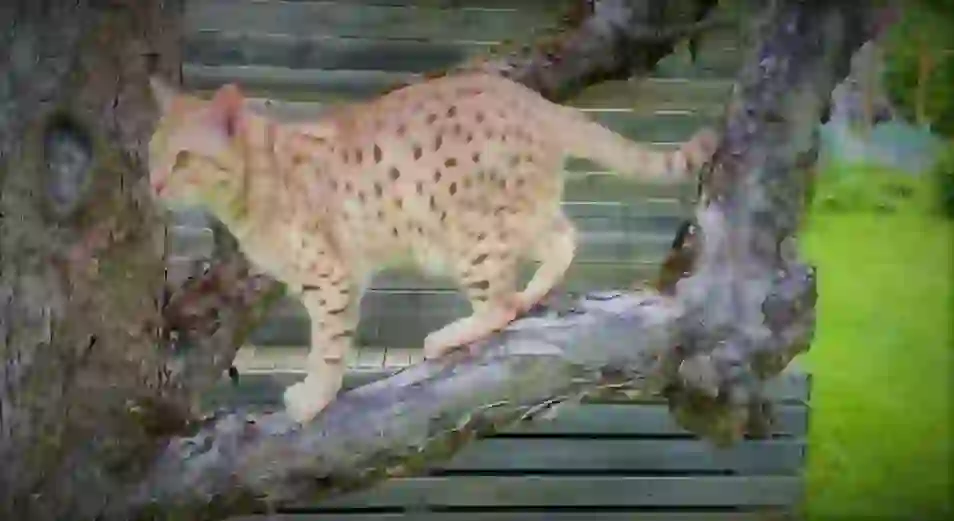
Country of origin America.
Weight male: 3.5-6.5kg female: 3-5.5kg.
Ocicats are said to be cats that were accidentally born as a result of a certain crossbreeding. In 1964, Virginia Daly, a breeder living in the United States, wanted to create a cat with the color of an Abyssinian and the points of a Siamese, so she decided to crossbreed them. Among the kittens that were born, she discovered one kitten with a rare appearance of ivory background and spots.
The kitten was initially named Tonga, but since it did not match Daly’s desired cat and image, she found someone who would take care of Tonga as a pet after neutering.
Time passed, and one day, Daly heard about a geneticist named Clyde Keeler who was trying to create a cat with spots similar to those of a wild cat called an ocelot. Daly remembered Tonga and contacted Keeler to see if there was anything she could do to help. However, Tonga had already been neutered.
Instead, she crossbred the parents of Tonga again, and as a result, a male cat similar to Tonga was born. This cat was named Dotson, and Dotson was further crossbred with American Shorthairs, Abyssinians, and Siamese cats. This led to the improvement of the Ocicat breed.
Afterwards, in 1966, Ocicats submitted an application for breed registration to the CFA (Cat Fanciers’ Association), but it seems that it was put on hold in the form of preliminary registration at that time. Daly also attempted to breed Ocicats in order to achieve official breed registration, but due to personal circumstances, she had to interrupt her breeding activities. However, breeding activities were continued by other breeder colleagues, and in 1987, Ocicats were finally recognized by the CFA as an officially recognized breed.
Ocicat Q&A

Where does the Osicat get its name?
Ocicats are named after the wild cat called an ocelot because their coat pattern resembles that of the ocelot.
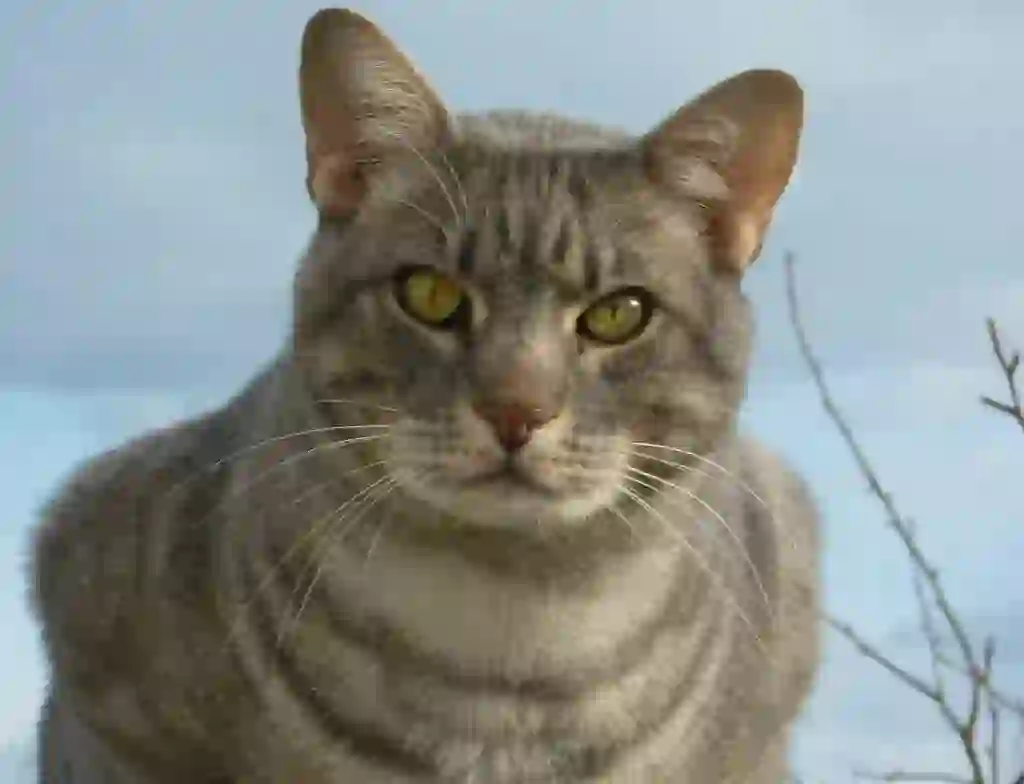
What are the color variations of the Ocicat?
There are Tawny (brown), Ebony Silver, Blue (silver), Chocolate (silver), Cinnamon (silver), Lavender (silver), and Fawn (silver) colors.
・Spotted tabby. Only spots all over the body.
There are yellow, gold, orange, copper, green, and hazel eye colors.
Ocicats are only short-haired.
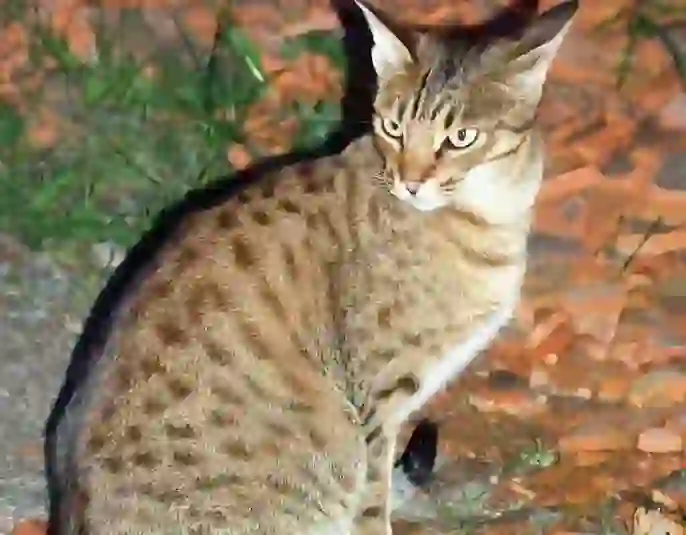
What is the difference between an ocicat and a Bengal?
I introduced the Egyptian Mau as a breed that has a similar coat pattern to the Ocicat. In fact, there is another breed called the Bengal that is similar to the Ocicat, so let's compare them.
While the Ocicat has only one type of spotted pattern, the Bengal has three main types of spotted tabby patterns. Among them, the pattern called "rosette" can be considered a unique pattern that only appears in Bengals.
The Ocicat has a semi-foreign body type, while the Bengal has a long and substantial body type. Although the Bengal tends to have a more solid appearance with a sense of weight, there is not a significant difference in weight between the two.
Both the Ocicat and Bengal have affectionate aspects, but the Ocicat is more sociable and tends to get along well with family members and even strangers, including the owner. On the other hand, due to its lineage from the Asian leopard cat, the Bengal can be a bit strong-willed and may have a desire for exclusive attention from the owner, so it may not be as friendly towards strangers.
Interestingly, both the Ocicat and Bengal are not good at being left alone for long periods of time. Therefore, if you live alone and often leave your home, it may be challenging to keep them as pets. Additionally, since Bengals require a considerable amount of exercise, it is necessary to provide them with ample space for physical activities. While the Ocicat is also an active cat, it should be fine to play with them like a regular domestic cat. Depending on the household environment, the Ocicat can be considered a breed suitable for beginners.
Both the Ocicat and Bengal are known to be hypoallergenic cats. The Ocicat has fewer allergenic proteins, while the Bengal is said to shed less hair, making them more suitable for people with cat allergies.
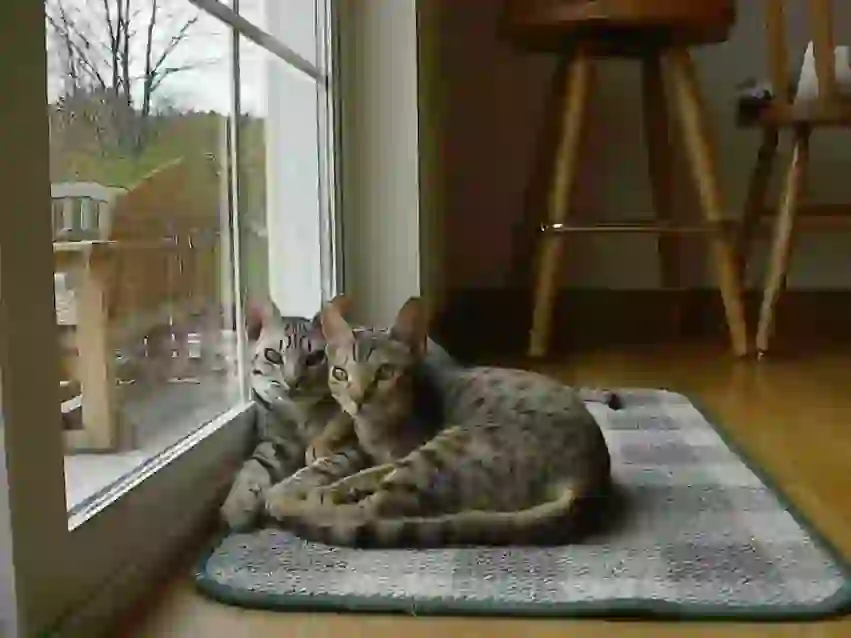
How much does it cost to buy an Osicat?
When keeping animals, it is necessary to follow the laws established by each country. This time, I will talk about keeping Ocicats at home in Japan. Since Ocicats are almost impossible to find in pet shops, it is common to purchase them from breeders or catteries. The price is around 200,000 to 400,000 yen. When considering a purchase, it is a good idea to visit and see the kitten you are interested in.
Furthermore, if you purchase from a “cattery,” which is the highest qualification for breeders, the price may be higher than that of a general breeder. Since catteries require certification from the pedigree issuing organizations “CAF” and “TICA,” breeders with this qualification are highly reliable and have added value. The reason for the high price is that it is a proof of trust.
In addition, here are some conditions that can cause the price to vary:
・Being a kitten. ・Having excellent pedigree. ・Having rare colors or patterns.
Although there are other conditions, it seems that the price tends to be higher if the above conditions apply.
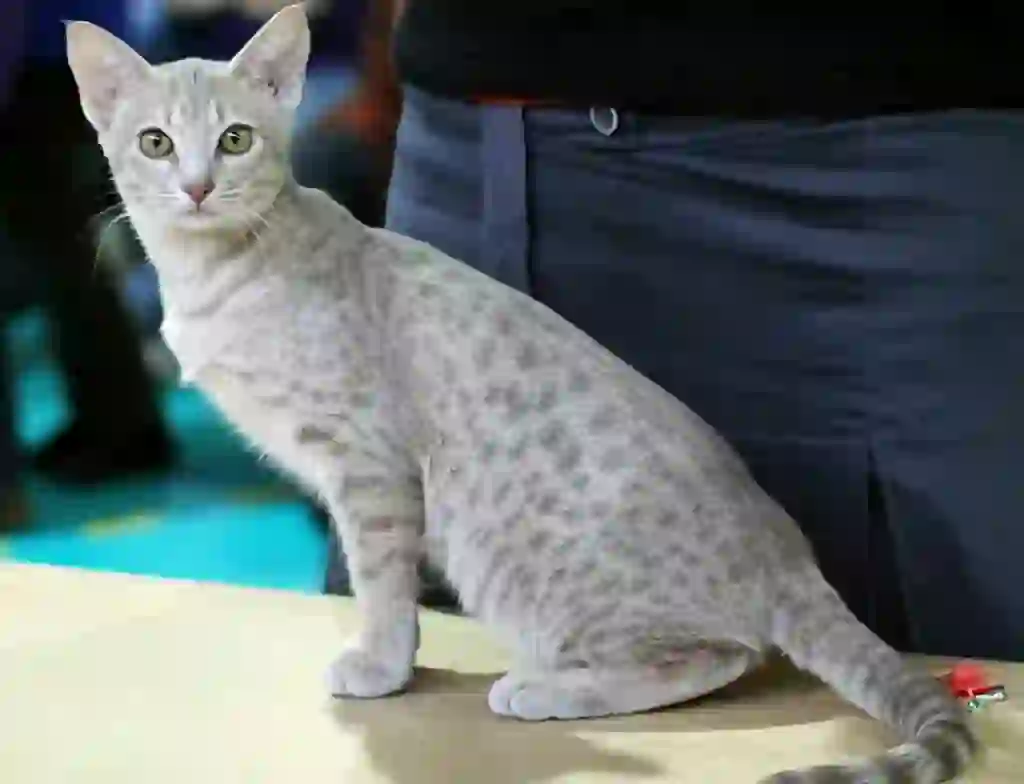
Learn more about the personality and traits of the Osicat!
Despite its wild appearance, the Ocicat is a sweet and affectionate cat. Unlike the Bengal, it does not have any Asian leopard cat blood, so it can be considered a pure domestic breed. As a result, it often actively approaches even people it meets for the first time. It shows an even more affectionate side to its family and owner, making it a perfect breed for those who love such cats.
While there are many cats known for their intelligence, the Ocicat is said to be even smarter. It is loyal to its owner, so training is usually not a problem, and with some practice, it can even learn to play fetch like a dog.
Although the Ocicat is an affectionate cat, it also has an active side and loves to move around and play. Providing a cat tower with vertical movement or a catwalk that allows it to walk in high places would be a good idea. On the other hand, it also has a lonely side. Therefore, it is not good at being left alone for long periods of time. It may be more suitable for families rather than people living alone.
As I mentioned earlier, the Ocicat is said to be a breed that is less likely to cause “cat allergies”. These types of cats are called “hypoallergenic cats”, and the Siberian and Sphynx are also part of this group. In the case of the Ocicat, it has fewer allergenic proteins, which makes it less likely to cause allergies.
However, whether or not allergy symptoms occur varies from person to person, so it cannot be said with certainty that it is completely safe! It is more like “less likely to cause allergies compared to other cats.” Therefore, if you have symptoms of cat allergies, I recommend consulting a doctor before keeping one.
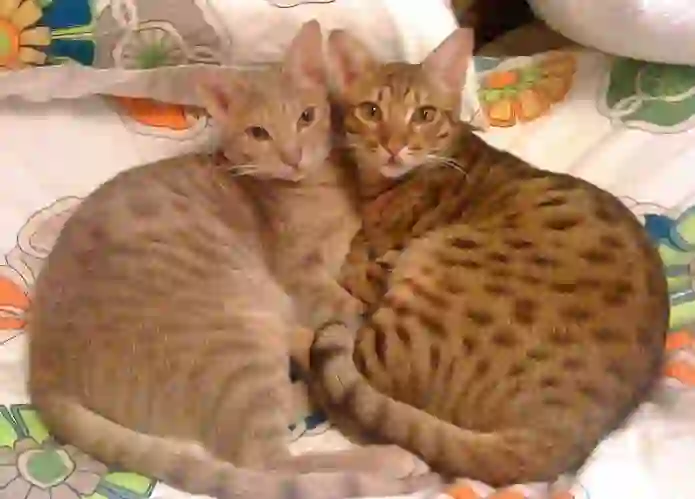
What diseases are Osicat susceptible to?
Ocicats are susceptible to two common health issues: hypertrophic cardiomyopathy and lower urinary tract disease.
Hypertrophic cardiomyopathy is a disease in which the heart muscle becomes thickened, leading to impaired heart contractions. It is often caused by genetic factors, and there are no specific preventive measures yet.
The disease may not show noticeable symptoms, and in severe cases, it can lead to complications such as blood clots, which can be fatal. Regular health check-ups are essential for early detection of the disease.
Although there is no definitive cure for hypertrophic cardiomyopathy, early diagnosis can help slow down the progression of the disease through symptomatic treatment.
Cats, in general, have a natural tendency to drink less water due to their evolutionary history. As a result, they are prone to lower urinary tract diseases caused by the strain on the kidneys.
Specific conditions include urinary stones that form in the kidneys and block the urethra, causing damage to the body’s tissues, and cystitis. If you notice symptoms such as a decrease in the frequency of urination, blood in the urine, or a change in the color of the urine, it is important to consult a veterinarian promptly.
While prevention is possible by paying attention to diet and the frequency of water intake, there is still a possibility of developing these conditions even with proper care. Therefore, I recommend regular health check-ups if possible.
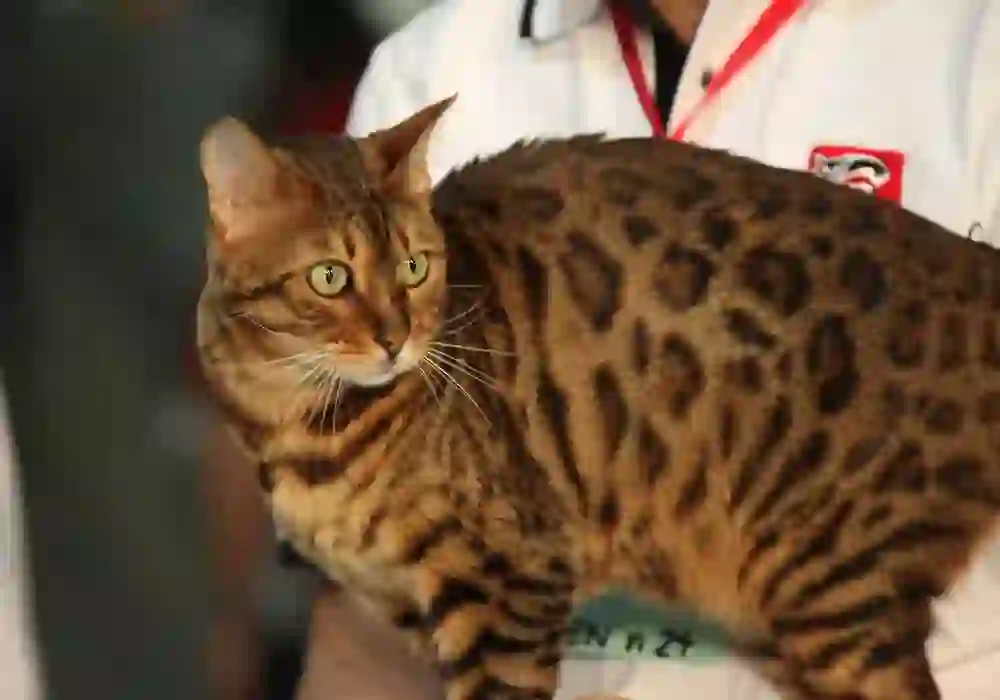
What is the lifespan of an ocicat?
The lifespan of an Ocicat is said to be 12 to 15 years. The average lifespan of a cat is 12 to 16 years, so it can be considered average.

Would you like to become a part of the 'Animalbook.jp'?
Turn your knowledge into Q&A and share it with the world. ※Publication will be activated after purchase. Let's share information together!
Ocicat Type of List
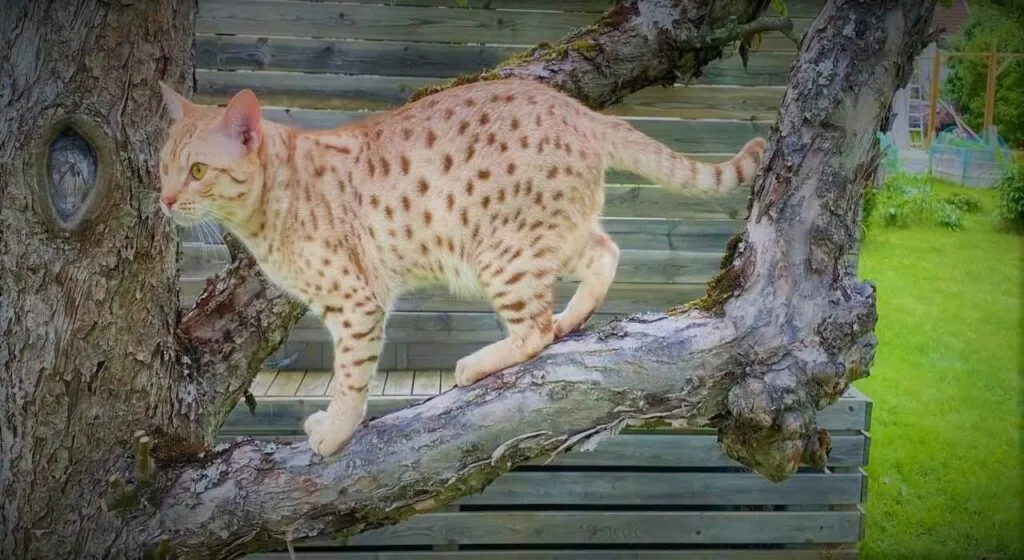
The Ocicat has a wedge-shaped head with rounded contours, almond-shaped eyes, and large ears with tufts of hair at the tips. It has a semi-foreign body type with muscular legs and a firm appearance. Although it is a shorthair breed, its soft and silky coat is also attractive to the touch.
The most distinctive feature of the Ocicat is its wild-looking leopard-like spotted coat pattern. The Egyptian Mau is another breed of cat with a similar coat pattern, but it is a naturally occurring breed, unlike the Ocicat, which was created by humans.
I introduced the Egyptian Mau as a breed that has a similar coat pattern to the Ocicat. In fact, there is another breed called the Bengal that is similar to the Ocicat, so let's compare them.
While the Ocicat has only one type of spotted pattern, the Bengal has three main types of spotted tabby patterns. Among them, the pattern called "rosette" can be considered a unique pattern that only appears in Bengals.
The Ocicat has a semi-foreign body type, while the Bengal has a long and substantial body type. Although the Bengal tends to have a more solid appearance with a sense of weight, there is not a significant difference in weight between the two.
Both the Ocicat and Bengal have affectionate aspects, but the Ocicat is more sociable and tends to get along well with family members and even strangers, including the owner. On the other hand, due to its lineage from the Asian leopard cat, the Bengal can be a bit strong-willed and may have a desire for exclusive attention from the owner, so it may not be as friendly towards strangers.
Interestingly, both the Ocicat and Bengal are not good at being left alone for long periods of time. Therefore, if you live alone and often leave your home, it may be challenging to keep them as pets. Additionally, since Bengals require a considerable amount of exercise, it is necessary to provide them with ample space for physical activities. While the Ocicat is also an active cat, it should be fine to play with them like a regular domestic cat. Depending on the household environment, the Ocicat can be considered a breed suitable for beginners.
Both the Ocicat and Bengal are known to be hypoallergenic cats. The Ocicat has fewer allergenic proteins, while the Bengal is said to shed less hair, making them more suitable for people with cat allergies.
When keeping animals, it is necessary to follow the laws established by each country. This time, I will talk about keeping Ocicats at home in Japan. Since Ocicats are almost impossible to find in pet shops, it is common to purchase them from breeders or catteries. The price is around 200,000 to 400,000 yen. When considering a purchase, it is a good idea to visit and see the kitten you are interested in.
Furthermore, if you purchase from a “cattery,” which is the highest qualification for breeders, the price may be higher than that of a general breeder. Since catteries require certification from the pedigree issuing organizations “CAF” and “TICA,” breeders with this qualification are highly reliable and have added value. The reason for the high price is that it is a proof of trust.
In addition, here are some conditions that can cause the price to vary:
・Being a kitten. ・Having excellent pedigree. ・Having rare colors or patterns.
Although there are other conditions, it seems that the price tends to be higher if the above conditions apply.
Despite its wild appearance, the Ocicat is a sweet and affectionate cat. Unlike the Bengal, it does not have any Asian leopard cat blood, so it can be considered a pure domestic breed. As a result, it often actively approaches even people it meets for the first time. It shows an even more affectionate side to its family and owner, making it a perfect breed for those who love such cats.
While there are many cats known for their intelligence, the Ocicat is said to be even smarter. It is loyal to its owner, so training is usually not a problem, and with some practice, it can even learn to play fetch like a dog.
Although the Ocicat is an affectionate cat, it also has an active side and loves to move around and play. Providing a cat tower with vertical movement or a catwalk that allows it to walk in high places would be a good idea. On the other hand, it also has a lonely side. Therefore, it is not good at being left alone for long periods of time. It may be more suitable for families rather than people living alone.
As I mentioned earlier, the Ocicat is said to be a breed that is less likely to cause “cat allergies”. These types of cats are called “hypoallergenic cats”, and the Siberian and Sphynx are also part of this group. In the case of the Ocicat, it has fewer allergenic proteins, which makes it less likely to cause allergies.
However, whether or not allergy symptoms occur varies from person to person, so it cannot be said with certainty that it is completely safe! It is more like “less likely to cause allergies compared to other cats.” Therefore, if you have symptoms of cat allergies, I recommend consulting a doctor before keeping one.
Ocicats are susceptible to two common health issues: hypertrophic cardiomyopathy and lower urinary tract disease.
Hypertrophic cardiomyopathy is a disease in which the heart muscle becomes thickened, leading to impaired heart contractions. It is often caused by genetic factors, and there are no specific preventive measures yet.
The disease may not show noticeable symptoms, and in severe cases, it can lead to complications such as blood clots, which can be fatal. Regular health check-ups are essential for early detection of the disease.
Although there is no definitive cure for hypertrophic cardiomyopathy, early diagnosis can help slow down the progression of the disease through symptomatic treatment.
Cats, in general, have a natural tendency to drink less water due to their evolutionary history. As a result, they are prone to lower urinary tract diseases caused by the strain on the kidneys.
Specific conditions include urinary stones that form in the kidneys and block the urethra, causing damage to the body’s tissues, and cystitis. If you notice symptoms such as a decrease in the frequency of urination, blood in the urine, or a change in the color of the urine, it is important to consult a veterinarian promptly.
While prevention is possible by paying attention to diet and the frequency of water intake, there is still a possibility of developing these conditions even with proper care. Therefore, I recommend regular health check-ups if possible.
The lifespan of an Ocicat is said to be 12 to 15 years. The average lifespan of a cat is 12 to 16 years, so it can be considered average.
Information
Congratulations! You are the first commenter!

Create Your Favorite List!
Ocicat
Save the animals you love! Build your own list to quickly revisit your favorites later.

Would you like to leave a comment?
※Please note: This is for the purchase of rights to post comments within the article.
Find Your Favorites!
Our shop offers a unique and attractive selection of goods themed around various animals.
Ocicat References

- まるごとわかる猫種大図鑑 監修:CFA公認審査員 早田由貴子
- 世界中で愛される美しすぎる猫図鑑 監修 今泉忠明
- The Cat Fancier's Association, Inc. https://cfa.org/ocicat/
- 猫との暮らし大百科 https://www.anicom-sompo.co.jp/nekonoshiori/
- みんなの猫図鑑 https://www.min-nekozukan.com/
- Pet Smile news forネコちゃん http://psnews.jp/cat/
- 子猫のへや https://www.konekono-heya.com/sitemap.html
- ねこちゃんホンポ https://nekochan.jp/
- 公益社団法人 埼玉県獣医師会 https://www.saitama-vma.org/topics/猫の遺伝性疾患について/
Ocicat Introduction of media used

出典:https://commons.wikimedia.org/wiki/File:Silver_Ocicat.JPG

出典:https://commons.wikimedia.org/wiki/File:Ocicat-sitting.jpg
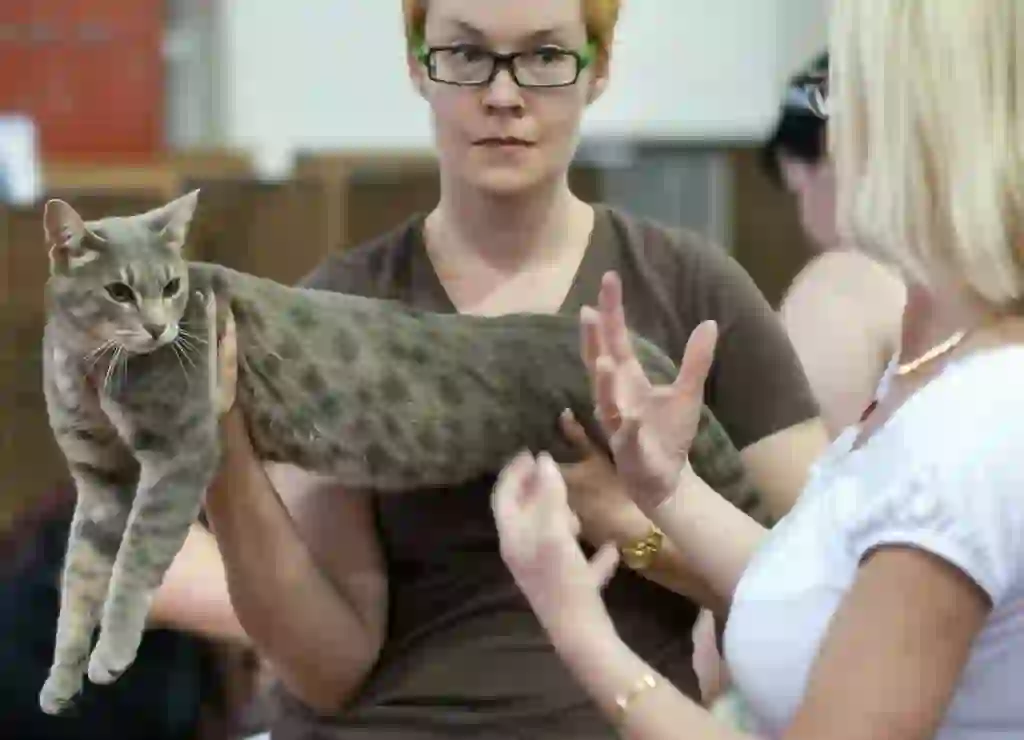
出典:https://commons.wikimedia.org/wiki/File:Ocicat.JPG
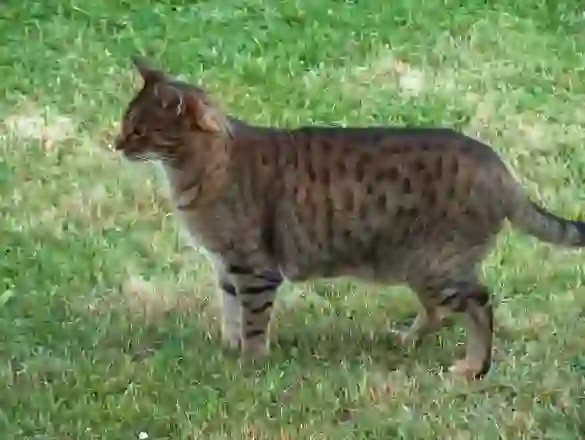
出典:https://commons.wikimedia.org/wiki/File:Ocicat_13.06.07_015.jpg

Help Enrich Our Animalbook.jp with Your Media!
We are constantly looking to expand and enrich our Animalbook.jp with amazing photos and videos of animals. If you have any media that you'd like to share, please contribute and help us showcase the beauty and diversity of the animal kingdom. Your submissions will be credited and featured in our encyclopedia, reaching a wide audience of animal lovers.
















